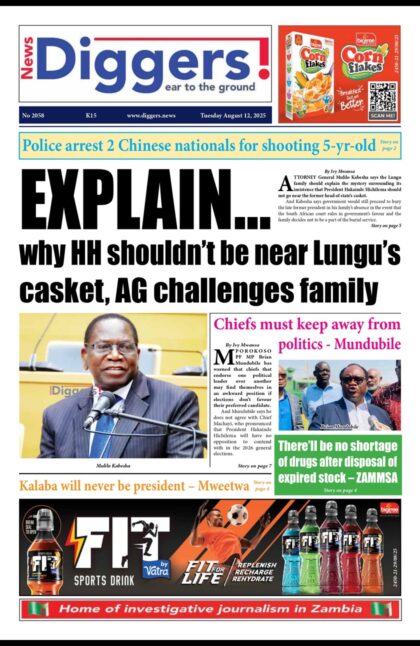The State has asked the Constitutional Court to stop former DPP Mutembo Nchito from summoning members of the Tribunal that recommended his removal from office.
Solicitor General Abraham Mwansa argued that the witnesses whom Mutembo summoned to produce the report of the Annel Silungwe-led tribunal against him were incapable of availing themselves, since the tribunal was disbanded after they submitted the report to the President and its members became factus officio.
Meanwhile, the Constitutional Court has reserved ruling in the matter where the State, through the Solicitor General, wants the court to set aside the summons issued against the chairperson and two members of the investigative tribunal that recommended Mutembo’s removal as DPP.
Mutembo is representing himself in the case where he is challenging his removal from the office of DPP.
When the matter came up yesterday before judges Mungeni Mulenga, Enock Mulembe, Professor Margaret Munalula, Palan Mulonda and Martin Musaluke, the Solicitor General Abraham Mwansa asked the court to set aside summons for judges who recommended the dismissal of the former DPP.
These are Justice Silungwe, who was chairperson of the defunct tribunal, and Mathew Zulu and Charles Zulu, now judges of the High Court, who were secretary and deputy secretary, respectively.
But the Solicitor General told the court not to entertain Mutembo’s application because the tribunal was disbanded and the report was handed over to the President.
On Mwansa’s application, Mutembo noted that the Solicitor General was contradicting himself by applying to set aside Summons when he is not the witness. Mutembo wondered how the Solicitor General was making an application on behalf of his (Mutembo ‘s )witnesses. He added that this was absurd.
Mutembo said Mwansa could not object to the Summons and had no right to swear an affidavit on behalf of the witnesses.
The question of calling witnesses is a matter which the court is empowered to do even without consulting the parties in order to do justice to all concerned. He concluded that it therefore, not a matter thatshould be taking the court’s time.
He, however, said if the court was of the mind that he needed leave of the court to issue summons he was accordingly applying that the court exercises its jurisdiction to allow him to summon the witnesses.
Mutembo asked the court to allow him call his witnesses as the matter had taken too long.
Mwansa had earlier argued that the report was handed to the President and as such, tribunal members were incompetent to produce it before court.
He said the summoned witnesses, did not have the report because it was given to the President.
Meanwhile, Mutembo asked the court if he could be allowed to call a witness to testify after the application of setting aside summons to subpoena witnesses was heard.
He asked the court to guide on the issues of submitting witnesses’ statements for those witnesses who also testified before the tribunal.
But Mwansa objected, saying the court was clear at its last sitting that the hearing was only for the application for setting aside summons.
Judge Mulenga agreed with Mwansa’s submissions and refused Mutembo’s request to call a witness to testify as that would be done at another sitting.
She, however, said witness statements should still be filed within two weeks or before the month ends.
The court has since reserved ruling on Mwansa’s application to set aside subpoenas to a date to be communicated.
























